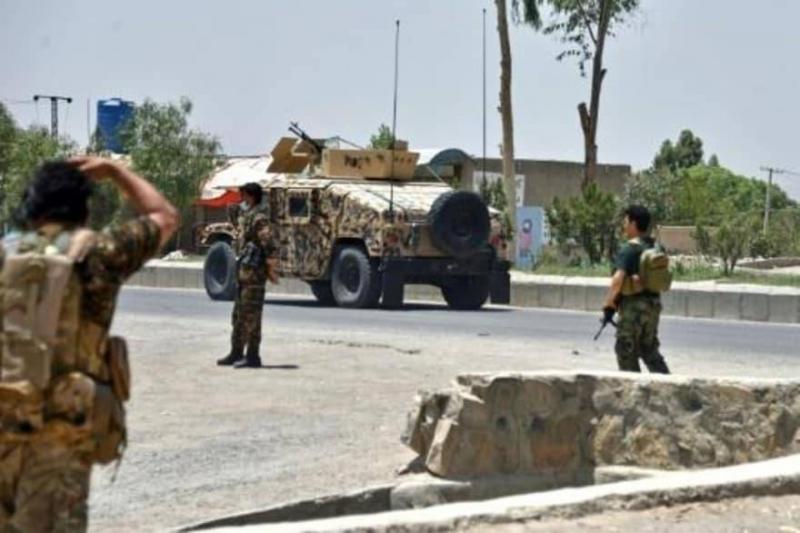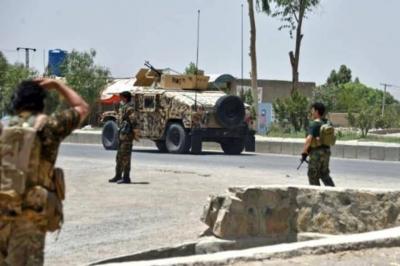On Tuesday, France called on all its citizens to leave Afghanistan due to "security conditions" and "short-term prospects" for the upcoming phase, as the Taliban conducts a widespread attack across the country. The Taliban has urged city residents to surrender to avoid fighting in their areas.
The French embassy announced in a statement that the French government will organize a flight on July 17 in the morning "to allow all French citizens" to return to their country, noting that "there will be no additional flights" and officially urged "all French nationals to board this special flight." The embassy informed French citizens who plan to "stay in Afghanistan beyond July 17" that it will not be able to guarantee their safe exit.
In a message published on the embassy's website, French ambassador David Martinon, on the eve of France's national holiday, stated that Afghan staff at the embassy, the French Institute, the French archaeological mission in Afghanistan, and the French NGO "Association of French-Afghan Friendship" have been relocated to France in recent weeks under asylum rights. The ambassador explained that "the embassy staff continues to work," completely ruling out the closure of the diplomatic mission in Kabul at this time. He stated, "We continue our work and more than ever support for the Islamic Republic of Afghanistan."
Foreign forces began their final withdrawal from Afghanistan in early May after a 20-year international military intervention, which is expected to be completed by the end of August. Meanwhile, the Taliban launched an offensive in all directions that began in early May, allowing them to capture vast areas of Afghan territory as the Afghan army is deprived of crucial U.S. air support. The rebels have taken control of several rural provinces and important border crossings with Iran, Turkmenistan, and Tajikistan. The Afghan army now controls only major cities and key road junctions.
Several areas in a province neighboring Kabul have recently fallen into the hands of the Taliban, raising fears that the capital or its airport— which serves as the only exit route for foreign nationals from the city— could be targeted soon.
The Taliban on Tuesday urged Afghan city dwellers to surrender to avoid urban conflict and warned Turkey against keeping its troops in the country after the completion of the U.S. withdrawal. Amir Khan Muttaqi, a senior Taliban official, tweeted that "now with battles transitioning from the mountains and deserts to city gates, the Mujahideen do not want to fight inside cities. It is better for our citizens and scholars to use all channels to connect" with the Taliban to "reach a logical agreement to spare their cities from damage."
Amir Khan Muttaqi, the former information and culture minister in the previous Taliban regime (1996-2001), leads the "Invitation and Guidance Committee" in the Taliban, which military personnel, police officers, government officials, public sector employees, or just citizens go to if they wish to defect or surrender to the insurgents. In a voice message posted on Twitter by spokesman Zabihullah Mujahid, the Taliban assured all citizens that Afghanistan will be the homeland of all, and no one will seek revenge.
This Taliban call recalls the strategy employed during their takeover in the mid-1990s: besieging cities and forcing traditional leaders to negotiate surrenders.
#### Warning to Turkey
On Tuesday, the Taliban strongly warned Turkey against keeping forces in Afghanistan to protect Kabul’s airport after the anticipated completion of the foreign troop withdrawal by the end of August. The movement stated in a message that "the decision of Turkish leaders is unwise, it violates our sovereignty and the unity and integrity of our territory, and it is against our national interests," following Turkish President Recep Tayyip Erdoğan's announcement that Ankara and Washington had agreed on "ways" to ensure the security of Kabul's airport after the withdrawal of foreign forces.
The Taliban added, "We consider the presence of foreign troops in our homeland by any country, no matter what the pretext, as occupation, and the occupiers will be treated accordingly." They continued, "If Turkish authorities do not reconsider their decision to continue occupying our country," the Taliban "will resist them as they have resisted 20 years of foreign occupation."
In recent years, the Taliban attacked major cities without being able to maintain control over them. They briefly seized the city of Kunduz in the north twice in 2015 and 2016, and in 2018 took the city of Ghazni about 150 km southwest of Kabul before being permanently expelled. In July, they attacked the capital of a province, Qala-i Naw (northwest), for the first time since the start of their current offensive. On Tuesday, the Afghan defense ministry announced that Afghan forces had fully cleared the city, the capital of Badghis province, after several days of fighting.




